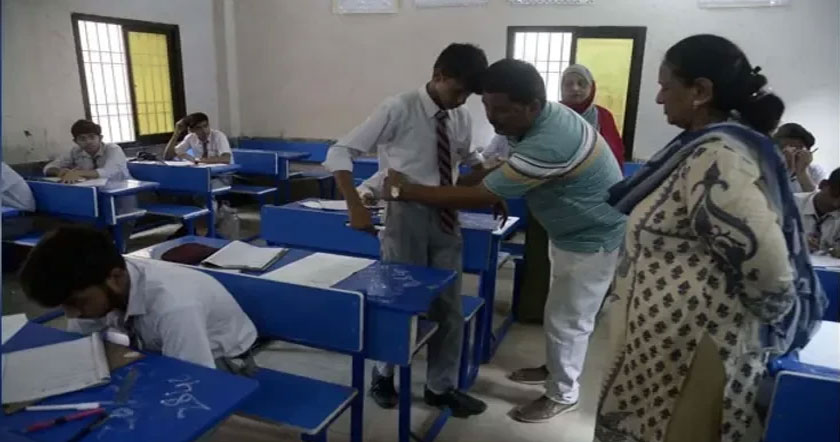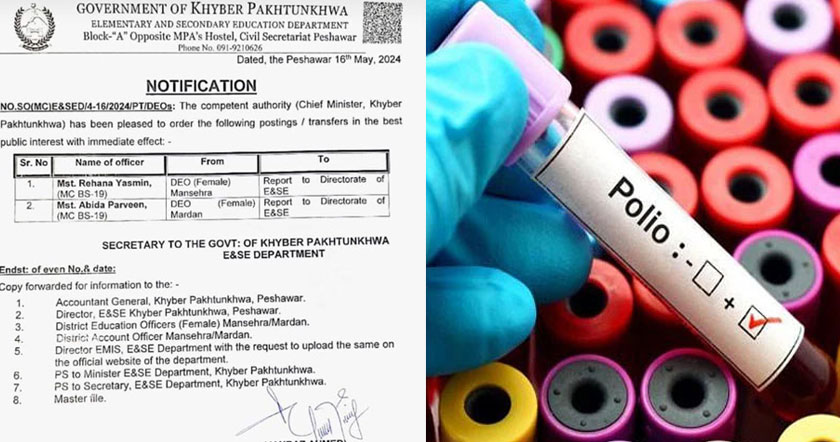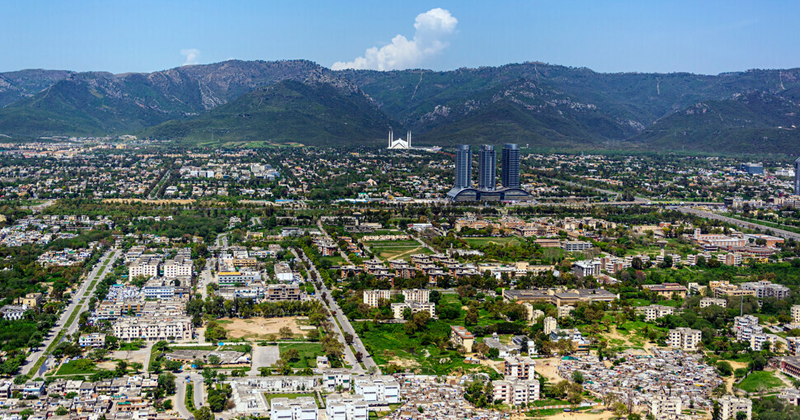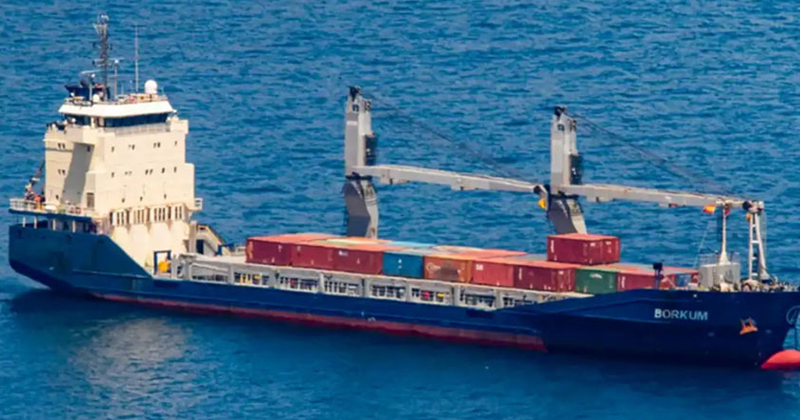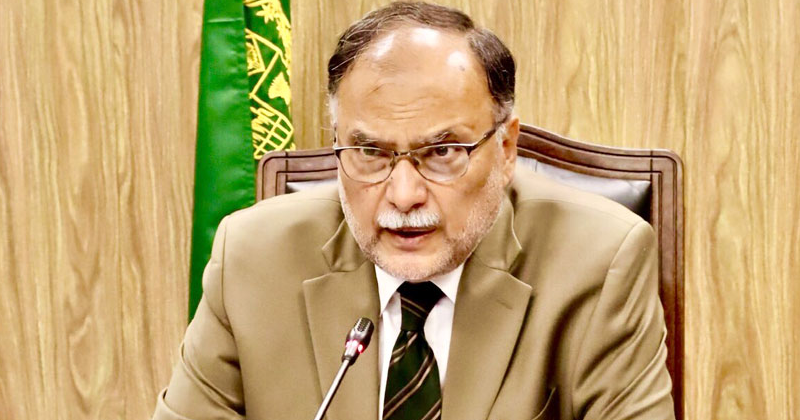Reports of new gas reserves of 40 trillion cubic feet are specially welcome at this moment in Pakistan when it is facing a very serious and growing energy crisis. Even if the demand doubles from the current one trillion cubic feet a year to two trillion cubic feet a year, the estimated current gas reserves can last as long as 30 years or more.

Pakistan is particularly heavily dependent on natural gas for its energy needs. Demand for natural gas in Pakistan has increased by almost 10 percent annually from 2000-01 to 2007-08, reaching around 3,200m cubic feet per day (MMCFD) last year, against the total production of 3,774 MMCFD, according to Pakistani official sources. But, during 2008-2009, the demand for natural gas exceeded the available supply, with production of 4,528 MMCFD gas against demand for 4,731 MMCFD, indicating a shortfall of 203 MMCFD.
The gas supply-demand imbalance is expected to grow every year to cripple the economy by 2025, when shortage will be 11,092 MMCFD (Million standard cubic feet per day) against total 13,259 MMCFD production. The Hagler Bailly report added that Pakistan's gas shortage would get much worse in the next two decades if it did not bring on any alternative sources.
Shale gas offers an alternative source for energy-starved Pakistan. Rough estimates indicate the presence of at least 33 trillion cubic feet of unconventional gas reserves trapped in rocks, according to an ENI Pakistan report. Another report by Shahab Alam, technical director of Pakistan Petroleum Concessions, puts the estimate at 40 trillion cubic feet of tight gas reserves in the country. These unconventional gas reserves are in addition to the remaining conventional proven gas reserves of over 30 trillion cubic feet.

With the pioneering work done in the United States on deep drilling and hydraulic fracturing (fracking) to extract hydrocarbons from shale rock, it is now estimated that the US alone has over 1000 trillion cubic feet of recoverable unconventional gas, according to the Wall Street Journal. Unlike the bulk of world's conventional natural gas reserves that are found in Russia, Iran, Venezuela and Qatar, the shale gas reserves have been discovered in rock formations spread across many parts of the world, including China, North America, Western Europe, India and Pakistan. Many energy analysts argue that tapping these new hydrocarbon resources could be a game-changer in terms of global economics and geo-politics.

Increased production of gas from shale in the US has created a glut, pushing down gas prices from $13/BTU (million British thermal units) four years ago to just $4.23/BTU today, even as the price of oil has more than doubled. By contrast, the Iran pipeline gas formula links the gas price to oil prices. It means that Pakistan will have to pay $12.30/BTU at oil price of $100/barrel, and a whopping $20/BTU for returns to its 2008 peak of $150/barrel.
To encourage investment in developing domestic shale gas, Pakistan has approved a new exploration policy with improved incentives as compared with its 2009 policy, a petroleum ministry official said recently. Pakistan Petroleum is now inviting fresh bids to auction licenses to explore and develop several blocks in Dera Ismail Khan (KPK), Badin (Sind), Naushero Firoz (Sind) and Jungshahi (Sind), according to Oil Voice.
Under the new policy, exploration companies will be offered 40-50% higher prices for the extracted gas compared with the $4.26/Btu price announced in Exploration and Production Policy 2009. Companies which succeed in recovering gas from tight fields within two years will get 50% hike over the 2009 price and if it takes more time they will get only a 40% hike on the 2009 price. As an added incentive, the leases for the fields will now be for 40 years instead of 30 in the 2009 policy, the official said.
Even with the higher prices for the tight gas offered to the exploration companies, it is estimated that Pakistan will have to pay a maximum of $6.50/Btu for the gas compared with $12.30/Btu for gas imports, according to a report by Platts.
Development of shale gas in Pakistan, or anywhere else, is not without risks, particularly risks to the environment. In the United States, there have been many reports of ground water contamination from chemicals used to fracture rocks, as well as high levels of methane in water wells. In the absence of tight regulations and close monitoring, such pollution of ground water could spell disaster for humans and agriculture.
Given Pakistan's heavy dependence on natural gas for energy and as feedstock for industries such as fertilizer, fiber and plastics, it's important to pursue shale gas fields development under reasonably tight environmental regulations to minimize risks to the ground water resources.
http://www.riazhaq.com/2011/05/pakistans-vast-shale-gas-deposits.html

Pakistan is particularly heavily dependent on natural gas for its energy needs. Demand for natural gas in Pakistan has increased by almost 10 percent annually from 2000-01 to 2007-08, reaching around 3,200m cubic feet per day (MMCFD) last year, against the total production of 3,774 MMCFD, according to Pakistani official sources. But, during 2008-2009, the demand for natural gas exceeded the available supply, with production of 4,528 MMCFD gas against demand for 4,731 MMCFD, indicating a shortfall of 203 MMCFD.
The gas supply-demand imbalance is expected to grow every year to cripple the economy by 2025, when shortage will be 11,092 MMCFD (Million standard cubic feet per day) against total 13,259 MMCFD production. The Hagler Bailly report added that Pakistan's gas shortage would get much worse in the next two decades if it did not bring on any alternative sources.
Shale gas offers an alternative source for energy-starved Pakistan. Rough estimates indicate the presence of at least 33 trillion cubic feet of unconventional gas reserves trapped in rocks, according to an ENI Pakistan report. Another report by Shahab Alam, technical director of Pakistan Petroleum Concessions, puts the estimate at 40 trillion cubic feet of tight gas reserves in the country. These unconventional gas reserves are in addition to the remaining conventional proven gas reserves of over 30 trillion cubic feet.

With the pioneering work done in the United States on deep drilling and hydraulic fracturing (fracking) to extract hydrocarbons from shale rock, it is now estimated that the US alone has over 1000 trillion cubic feet of recoverable unconventional gas, according to the Wall Street Journal. Unlike the bulk of world's conventional natural gas reserves that are found in Russia, Iran, Venezuela and Qatar, the shale gas reserves have been discovered in rock formations spread across many parts of the world, including China, North America, Western Europe, India and Pakistan. Many energy analysts argue that tapping these new hydrocarbon resources could be a game-changer in terms of global economics and geo-politics.

Increased production of gas from shale in the US has created a glut, pushing down gas prices from $13/BTU (million British thermal units) four years ago to just $4.23/BTU today, even as the price of oil has more than doubled. By contrast, the Iran pipeline gas formula links the gas price to oil prices. It means that Pakistan will have to pay $12.30/BTU at oil price of $100/barrel, and a whopping $20/BTU for returns to its 2008 peak of $150/barrel.
To encourage investment in developing domestic shale gas, Pakistan has approved a new exploration policy with improved incentives as compared with its 2009 policy, a petroleum ministry official said recently. Pakistan Petroleum is now inviting fresh bids to auction licenses to explore and develop several blocks in Dera Ismail Khan (KPK), Badin (Sind), Naushero Firoz (Sind) and Jungshahi (Sind), according to Oil Voice.
Under the new policy, exploration companies will be offered 40-50% higher prices for the extracted gas compared with the $4.26/Btu price announced in Exploration and Production Policy 2009. Companies which succeed in recovering gas from tight fields within two years will get 50% hike over the 2009 price and if it takes more time they will get only a 40% hike on the 2009 price. As an added incentive, the leases for the fields will now be for 40 years instead of 30 in the 2009 policy, the official said.
Even with the higher prices for the tight gas offered to the exploration companies, it is estimated that Pakistan will have to pay a maximum of $6.50/Btu for the gas compared with $12.30/Btu for gas imports, according to a report by Platts.
Development of shale gas in Pakistan, or anywhere else, is not without risks, particularly risks to the environment. In the United States, there have been many reports of ground water contamination from chemicals used to fracture rocks, as well as high levels of methane in water wells. In the absence of tight regulations and close monitoring, such pollution of ground water could spell disaster for humans and agriculture.
Given Pakistan's heavy dependence on natural gas for energy and as feedstock for industries such as fertilizer, fiber and plastics, it's important to pursue shale gas fields development under reasonably tight environmental regulations to minimize risks to the ground water resources.
http://www.riazhaq.com/2011/05/pakistans-vast-shale-gas-deposits.html
















